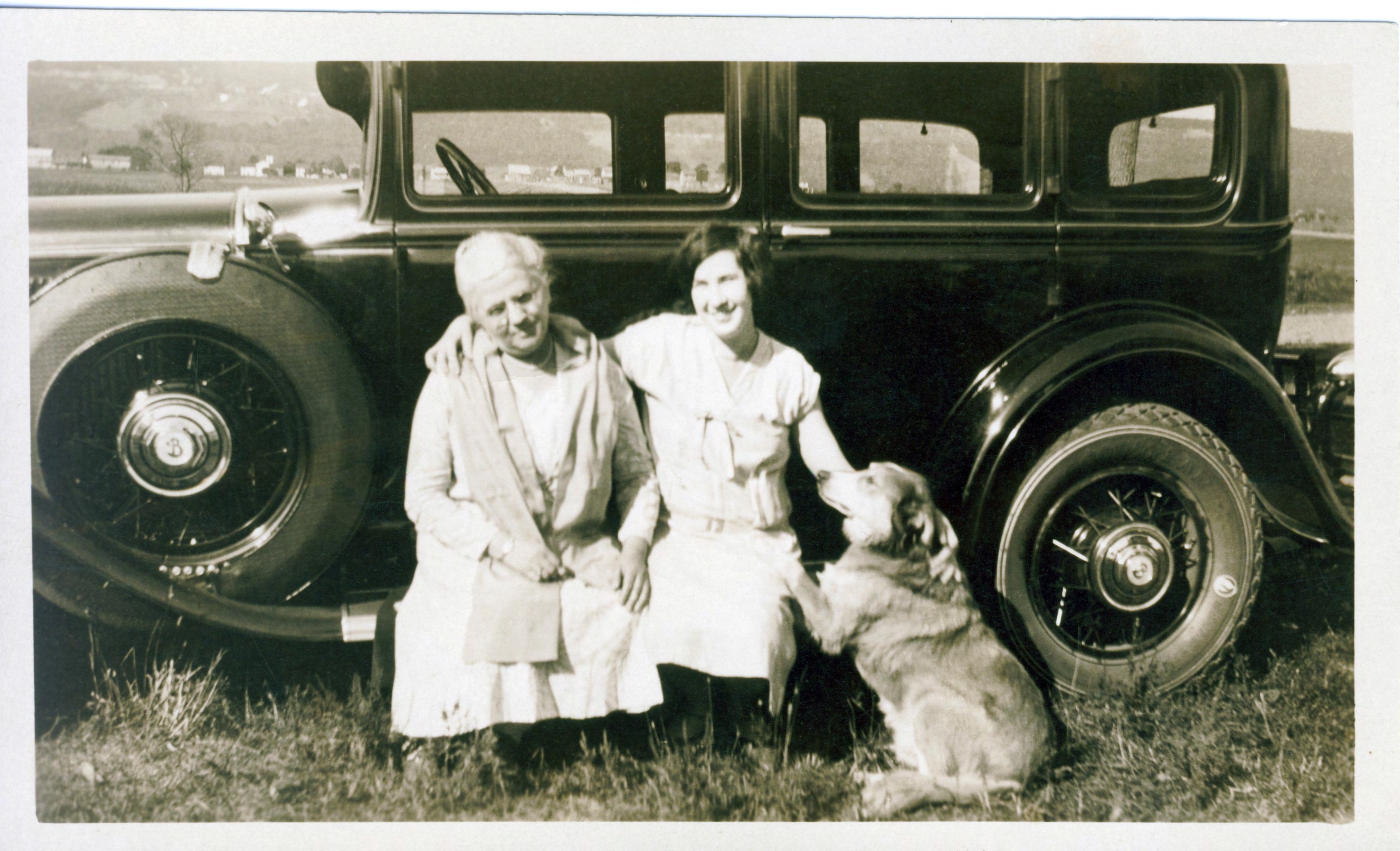Have you ever wanted to learn about your ancestors and what made them special? Each of your forebears has a remarkable story worth discovering. Building your family tree will take you on a fascinating journey back through time filled with many intellectual and emotional rewards.
The Apex Family History Center, located at 590 Bryan Drive on the campus of The Church of Jesus Christ of Latter-day Saints, is one of thousands of family history centers throughout the world that helps people connect with their roots. Cathy Hinckley, who serves as the center’s director, has been involved in genealogy research for over 35 years. Before moving to North Carolina two years ago with her husband Ron, Cathy was a key family research volunteer at the BYU Religion and Family History Library in Provo, Utah. Ron, who has a Ph.D. in political science and international relations, and has long been involved in public opinion research, volunteers by Cathy’s side.
The Hinckleys are dedicated to helping more than 550 visitors each year at the Apex Family History Center trace their genealogy so they can feel closer to their ancestors and create stronger family ties among their living relatives. Cathy and Ron, who guided my own ancestral journey, recently answered questions via email about personal family research and the Apex Family History Center.
What should a first-time visitor expect at a family history center?
Family history centers are branches of FamilySearch (a nonprofit family history organization dedicated to connecting families across generations) and the Family History Library. They provide resources for research and study of genealogy and family history. A typical family history center offers you a computer or device to use as you search for ancestors; one-on-one support from a real person (local volunteer staff often with years, if not decades, of experience) when you have questions or get stuck; and special access to genealogical websites that may not be available to you from your home.
Is there a fee to use the Apex Family History Center’s services?
No. In 2014, FamilySearch announced a series of agreements with Ancestry.com, Findmypast.com, and MyHeritage.com to accelerate the delivery of freely searchable genealogical records to family history researchers. These agreements are in line with the FamilySearch mission to publish online as many freely available, searchable genealogical records as possible. FamilySearch indexing is, at best, only a partial solution to the challenge of making searchable records available in a timely fashion. Clearly, there is a need for additional, creative approaches to providing indexed records, which is why it makes sense to partner with leading commercial genealogy providers such as Ancestry.com, Archives.com, Findmypast.com, Fold3.com, and MyHeritage.com. Working together, FamilySearch and its partners will bring billions of currently unsearchable and unavailable records to patrons decades before these records would otherwise become available. Part of the agreement with our partners stipulates that members of The Church of Jesus Christ of Latter-day Saints will gain the ability to access the full collections of records published on their sites. Members will be able to view these images free in nearly all circumstances. These same sites are available free to all researchers in the Family History Library and our more than 4,700 family history centers worldwide. The other way to gain access at this point is to subscribe to the partner services.
What are most visitors looking for when they explore their genealogy?
Most patrons come to find and document members of their family trees and then to add them to the tree on FamilySearch.org. Many take this information and apply it to their personal accounts on other programs such as Ancestry.com. Other patrons come to find information about specific family members either through newspapers, memories, and documentation attached to individuals in various family trees, immigration records, ship passenger lists, etc. Some seek access to various state and county historical land deeds, tax rolls, marriage licenses, etc.
How far back can a person generally trace their records?
Relating to documentation, this depends on one’s national origins, one’s ethnicity, and one’s luck. People with European genealogies can sometimes directly trace people back into the 1300s, depending on the country records (birth/christening, tax rolls, wills, and estate or land records) kept by churches, states, and other legal entities. This varies from country to country so how far depends on you finding someone in your lines for which adequate documentation exists.
Have you ever had someone trace their family records to anyone famous (or infamous), or discover other surprising or amazing finds?
All the time, but the more telling finds are those that touch an individual’s soul.
Why is the national census important in the study of genealogy? How do censuses benefit people tracing their family trees now?
Many states had their own census in years different than the national census and these records are available also. Different censuses collected different information, but are mainly connected to a family with names. One can trace an ancestor’s place of residence over the years, their schooling, their occupation, where their previous generations were from or born, their language. The 1880 census is the only one with a column for health information and it has proved invaluable to medical researchers. Individuals who are trying to find why they lose track of an ancestor can sometimes identify them with a specific illness in 1880 that would explain why they did not show up in the 1885 state census or subsequent U.S. census.
How are gravestones and cemeteries documented?
FindaGrave.com is free and is the largest online collection of burial information. Not every grave is on the site, but 110 million memorials are available, and thousands are added daily. All the images of grave markers, photos, biographies and other details that are on FindaGrave.com have been uploaded by more than 200,000 volunteers. Find A Grave is also available as a mobile app for android and iOS phones. Want to find a great way to serve others by taking photos with your phone? There are easy steps to download the app and follow instructions on an outing with family or friends to fulfill a request for someone looking for their own ancestors.
How can someone fix information in their family search that they know to be incorrect?
Errors can occur from multiple sources: the original documents have incorrect information due to low levels of education and/or writing/spelling skills of clerks or people themselves; people make errors when indexing the information (putting the “image” into machine readable format), and confusing people with similar names but different families; and the laziness of researchers themselves. To provide for this, avenues exist for review (arbitration in indexing where people differ on what something is [letter of alphabet, name, date, etc., so a professional is called in] and on a person’s individual record people can edit and offer sources and information as to why that information is correct). FamilySearch is very user friendly; it allows for rectification of errors and protects against deletions of individuals.
Do family search websites allow people to build on their current families and add photos, and videos for future generations?
Yes.
Begin Your Journey
The path to your past begins in the present. Before building your family tree, genealogy experts suggest starting with yourself and working backward. Talk to relatives, young and old, and write down what they tell you, as well any facts you already know, such as the names of your parents, grandparents, and great-grandparents, as well as dates and locations of vital events, including births, marriages, deaths, and burials. Knowing these details will give you a good head start as you trace your family’s lineage and document your own personal story for your descendants. Learn more at FamilySearch.org.
Due to the COVID-19 pandemic, the Apex Family History Center is temporarily closed. Visit FamilySearch.org/wiki/en/Apex_North_Carolina_Family_History_Center for updates on its reopening. Normal business hours are Tuesdays, 10 a.m.-1 p.m. and 6:30-9:30 p.m.; and the first and second Saturdays of each month, 10 a.m.-1 p.m. Groups may reserve an appointment when the center reopens. The center is closed on national holidays, July 1-14, and the weeks of Thanksgiving, Christmas, and New Year’s.








